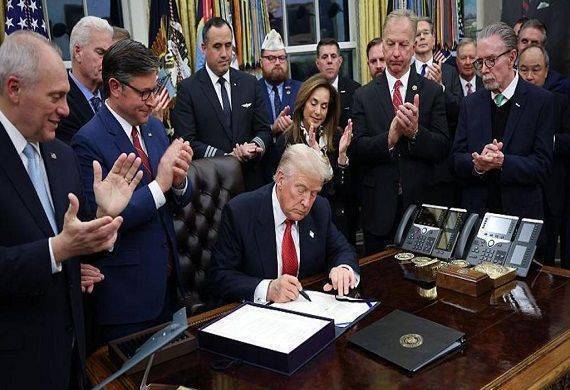US House Passes Deal to End Record-Long U.S. Government Shutdown
By Global Leaders Insights Team | Nov 13, 2025

The U.S. House of Representatives voted 222-209 on Wednesday to approve a funding measure that ends the longest government shutdown in American history. The bill, already cleared by the Senate, was signed by President Donald Trump, allowing federal operations to restart after 43 days of disruption.
The agreement restores funding for several agencies through the full fiscal year and extends temporary financing for others until January 30. The package ensures federal employees will receive back pay and enables the resumption of key programs including food assistance and air-traffic control services, which were strained during the stoppage.
The shutdown had halted services across multiple departments, slowed airport operations, and left hundreds of thousands of employees without paychecks. Economists estimate the lapse shaved more than a tenth of a percentage point off U.S. GDP during the period.
- US House Approves Deal to End 43-Day Government Shutdown
- Funding Bill Restores Federal Operations, Guarantees Back Pay for Workers
- New Deadline Looms as Lawmakers Face Fresh Budget Fight Before Jan. 30
Political divisions defined the final vote. Most Democrats opposed the measure because it did not include an extension of Affordable Care Act insurance subsidies, which are set to expire later this year. Republican leaders said the priority was reopening the government quickly and addressing unresolved policy issues in future negotiations.
President Trump, speaking at the signing ceremony, said the shutdown “should never have reached this length” but called the agreement a necessary step to stabilise federal operations. Agencies will begin restoring normal activities, though some services and data releases are expected to take time to fully resume.
Also Read: Rubio Denies Report UK Halted Intel Sharing Over Boat Strikes
With the government funded only until late January, lawmakers now face a compressed window to negotiate a broader spending plan. The next deadline is likely to renew partisan battles as both parties prepare for the 2026 election landscape.
.jpg)

